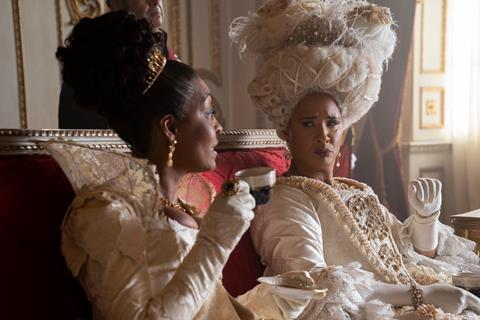
Netflix UK generated revenue of £1.4bn last year – posting huge year-on-year gains after changing the way in which it reports its figures.
The SVoD giant’s income soared 1630% over the 12 months to 31 December, from the previous year’s £80m, as a result of its decision to record its UK membership fees in London, rather than via its European headquarters in the Netherlands.
The figures emerged as part of its annual filing at Companies House.
According to Ofcom’s Media Nations 2022 report, Netflix is the largest SVoD provider in the UK with 17m subscribers – meaning its average revenue per user was just under £7 per month over the period.
Profit after tax jumped 170% to £22.7m, from £8.4m the previous year. With pre-tax profit hitting £28.6m, the SVoD is estimated to have paid around £6m tax last year, up from £3m in 2020.
Over the period, Netflix employed an average of 150 staff, up from 108 the previous year. With staff costs hitting £37m, the average gross salary is estimated at circa £240,000 per year
The results were issued at the same time as Netflix Studios UK figures, relating to its physical studio lease agreements. They showed revenue increasing to £103m from £79m as a result of an ‘increase in use of studio space during the year’.
Across both companies, Netflix employed a total of 375 staff, up from 268 the previous year. Its total wage bill of £76m indicates that the average gross salary was £200,000 in 2021.
Netflix, which invested a total of $1bn (£744m) in British content last year, used its results to highlight its £1.2m per year investment in talent scheme Grow Creative and £350,000 contribution to 30 actor scholarships.
A spokeswoman said: “The UK has one of the world’s leading film and TV industries, that’s why we invest more in production here than anywhere outside North America.
“Last year we spent over $1bn, creating thousands of jobs and making world-class series and films across every corner of the country.
We’re committed to investing in the UK’s creative community, bridging the skills gap and creating high-quality jobs on some of our biggest global hits like Bridgerton, The Witcher and Three-Body Problem.”
This story was first published by Screen’s sister title Broadcast

























No comments yet